Look: DOTr Shares Guidelines for Social Distancing in PUVs During GCQ
Look: DOTr Shares Guidelines for Social Distancing in PUVs During GCQ
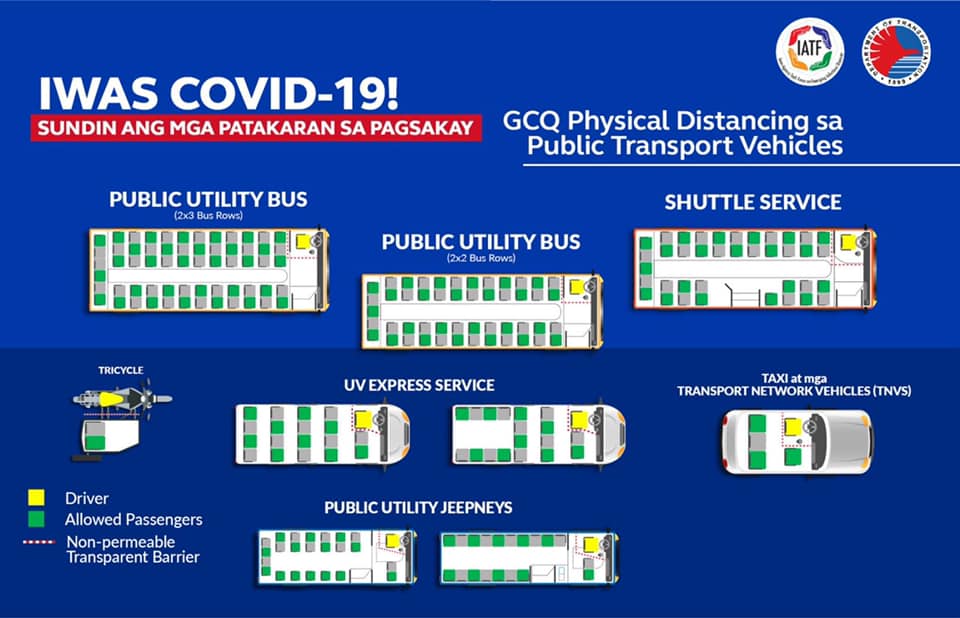
The Department of Transportation shared Social Distancing guidelines on the partial operation of public utility vehicles like buses, shuttle service, jeeps, taxis and TNVs and tricycles during GCQ (general community quarantine). To prevent the spread of COVID-19 virus, everyone is urged to practice social distancing or 1 meter distance inside the PUVs.
Drivers and passengers are required to wear face mask. For jeepney passengers, fare must be paid to the driver before entering to prevent close contact. Only 50% of the passenger capacity is allowed for buses and jeepneys.
“Public transportation in the road sector will be available in areas declared under GCQ but we will strictly impose health safety standards at all times to ensure the safety of our drivers and passengers,” said DOTr Assistant Secretary for the Road Transport and Infrastructure Mark Richmund de Leon.
All permitted PUVs and transport terminals and operators must adhere to all three essential components dictated in the protocol/guidelines – Safety, Capacity and Coverage/Scope.
Safety refers to guidelines that reduce contact, transmission, and spread of the virus through the mandatory use of face masks and gloves for drivers. Thorough disinfecting practices of vehicles, terminals, and even among passengers are also required.
Capacity and passenger load factors will be required for each mode of transportation to ensure that physical distancing is followed. Passenger load for public utility buses (PUBs) and public utility jeepneys (PUJs) should not exceed 50 percent or half of the vehicle’s capacity, excluding driver and conductor. For UV Express and taxis, passenger load should not exceed two passengers per row, except for the driver’s row where only one passenger is allowed. Tricycles, on the other hand, must not exceed one passenger in the side-car, while backriding will not be allowed.
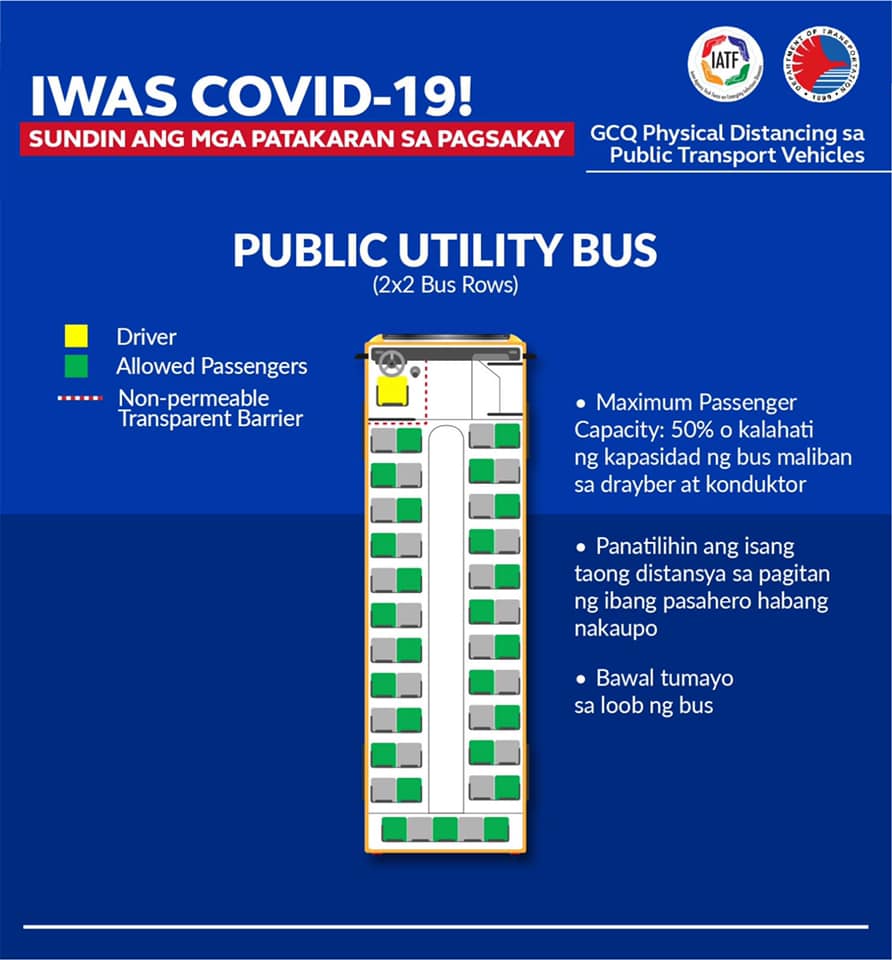
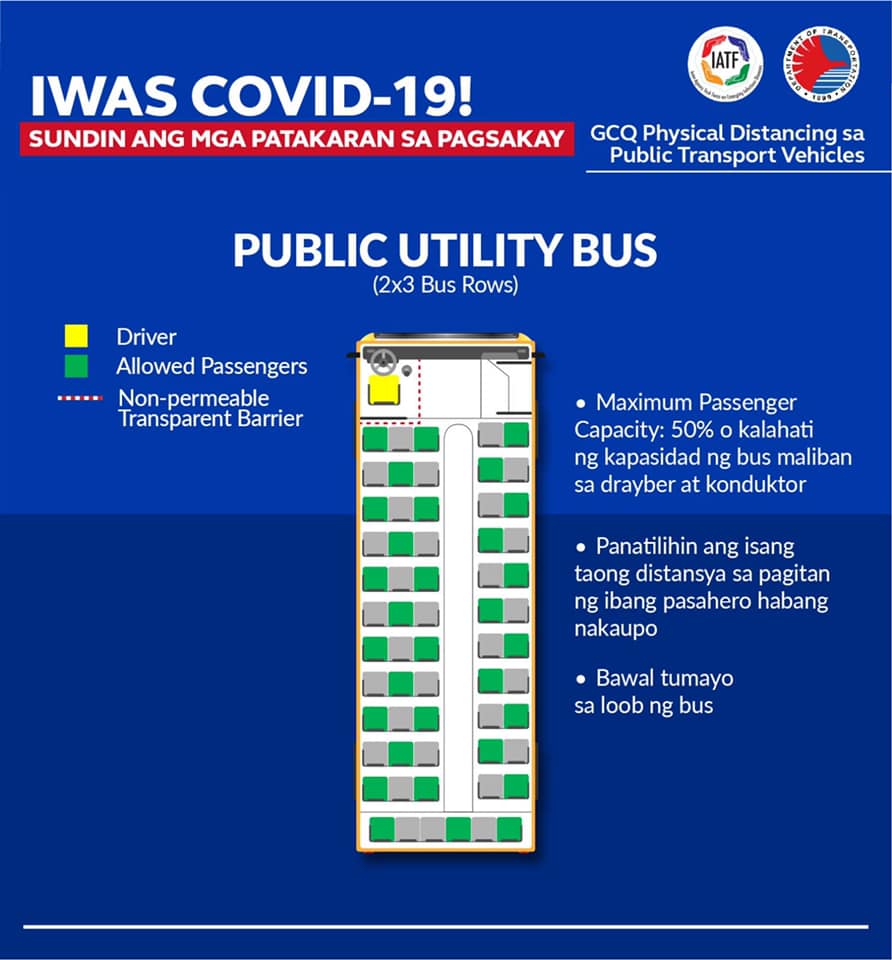
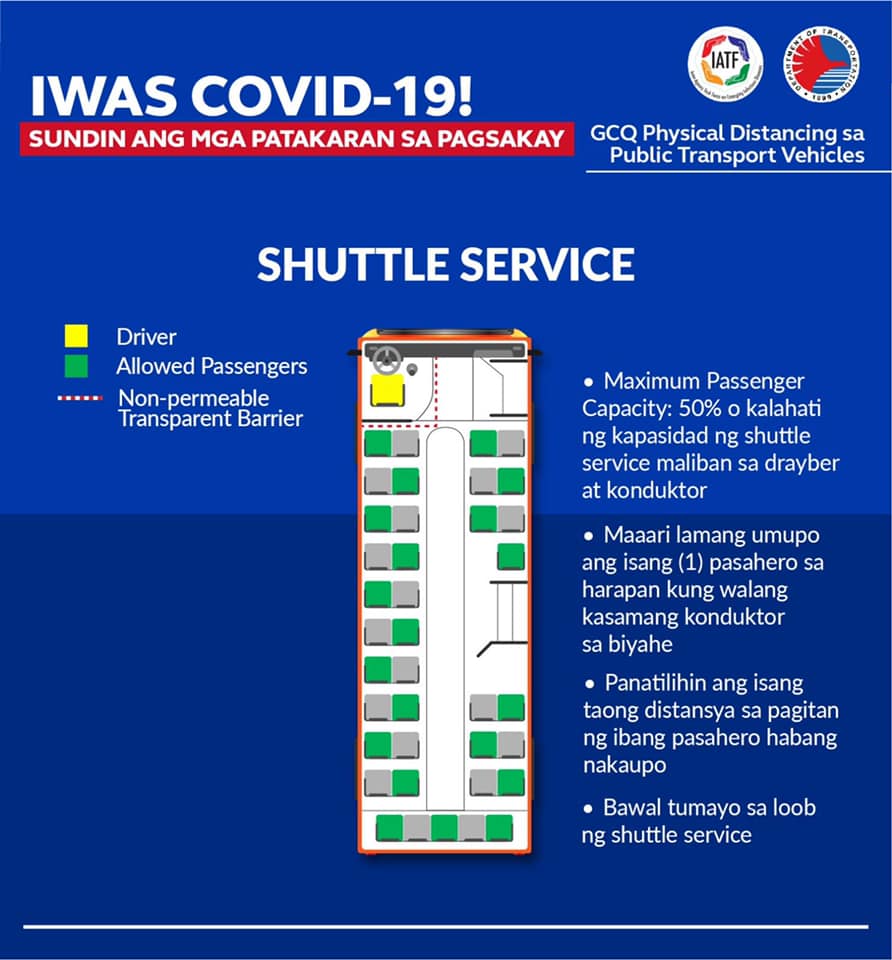
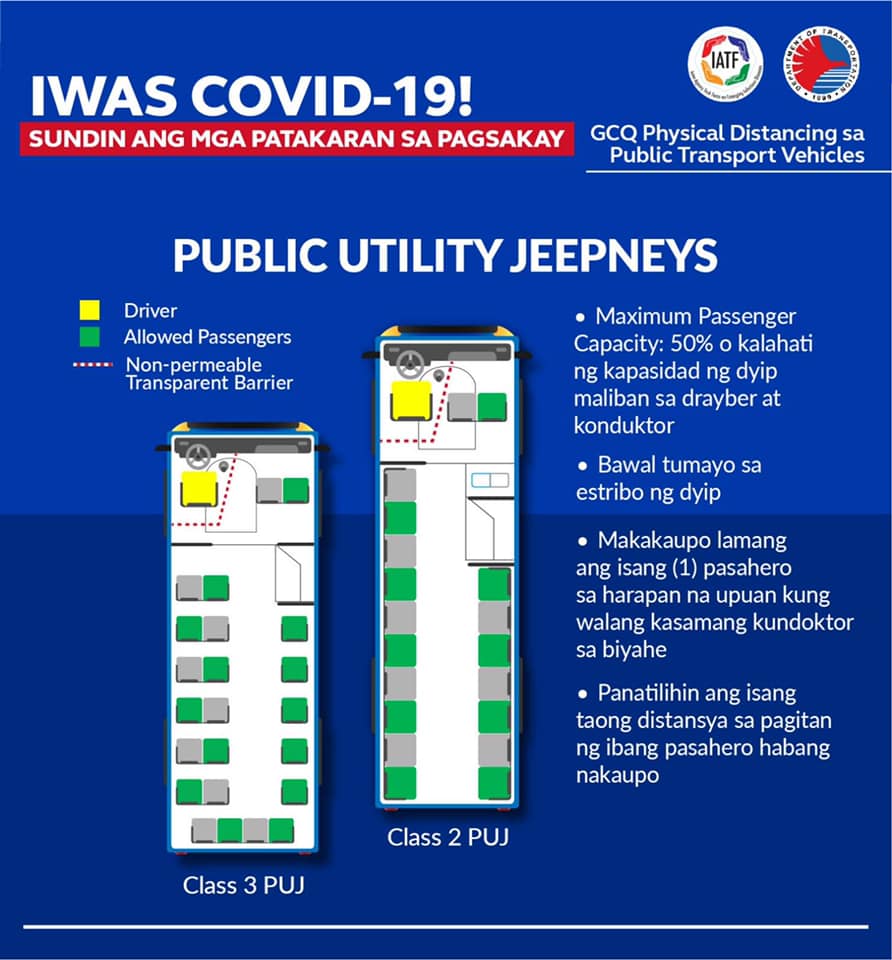
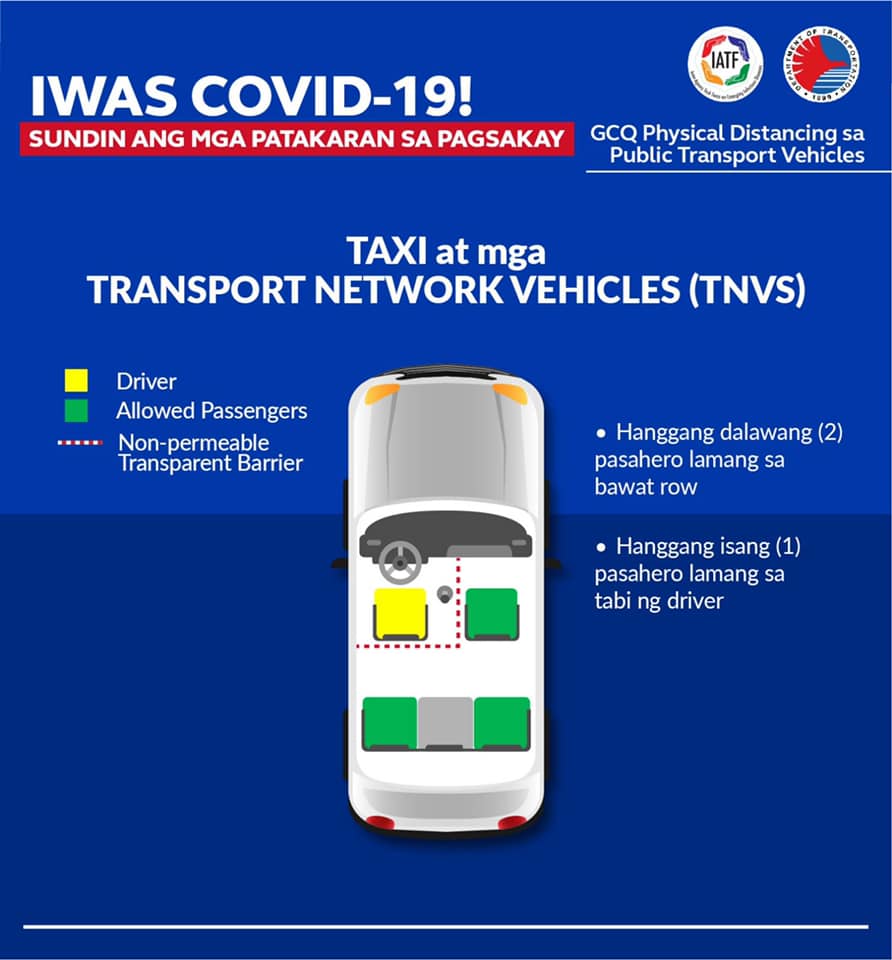
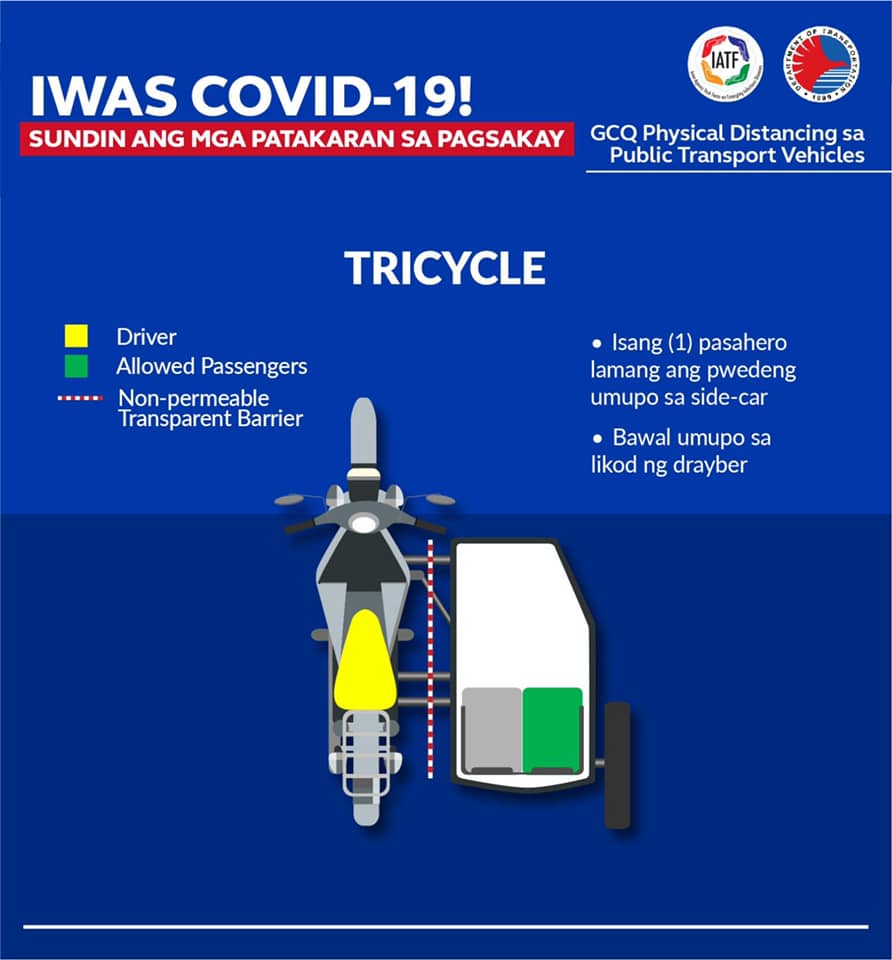
The LRT-1, LRT-2, MRT-3 and PNR will resume its operations with LIMITED CAPACITY after the lifting of the Enhanced Community Quarantine (ECQ) imposed in Metro Manila, or on May 16, 2020.
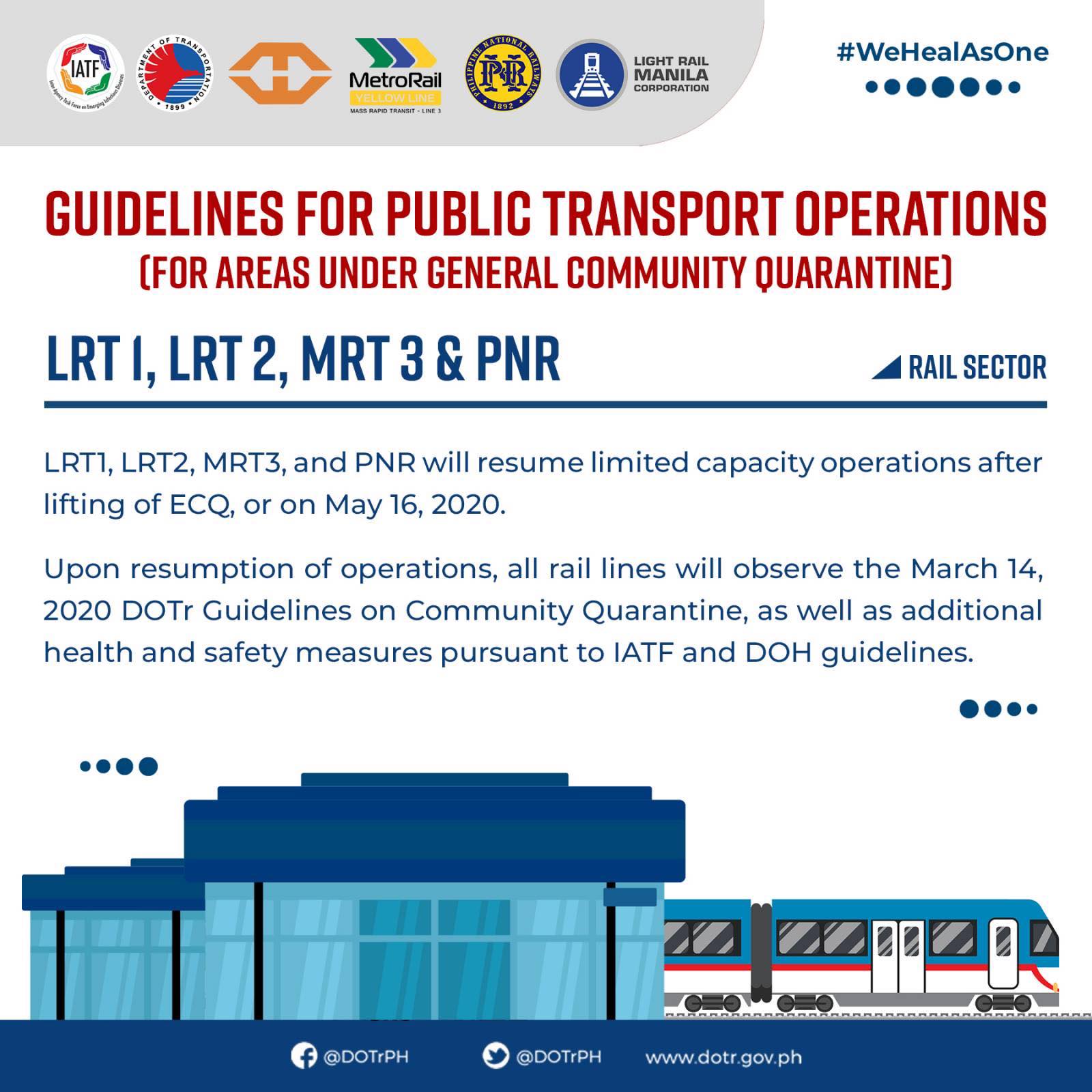
Upon the resumption of operations, all rail lines will observe the March 14, 2020 DOTr Guidelines on Community Quarantine, as well as additional health and safety measures pursuant to IATF and DOH Guidelines.
SOCIAL DISTANCING (1-meter) should be strictly observed inside the trains and stations. Presence of markings, signages, tarpaulins and other logistics will be utilized to ensure its firm implementation.
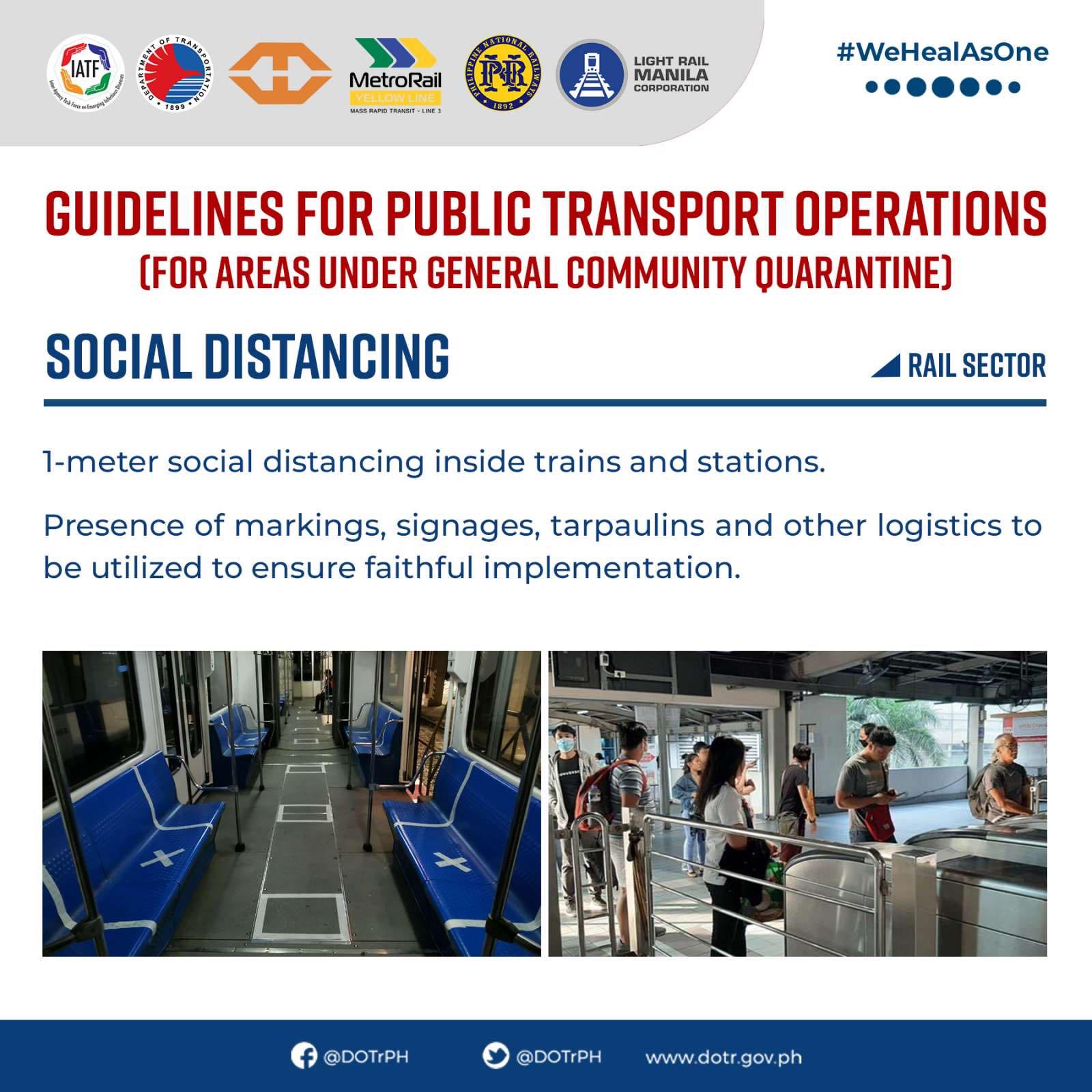
Pursuant to DOH Guidelines, the following passengers will not be allowed to enter the station:
1) Passengers who are not wearing proper face mask;
2) Passengers showing COVID-19 symptoms or with a registered body temperature of 37.8°C or higher; and
3) Senior citizens, passengers aged 0-20, and pregnant women due to their susceptibility to COVID-19.
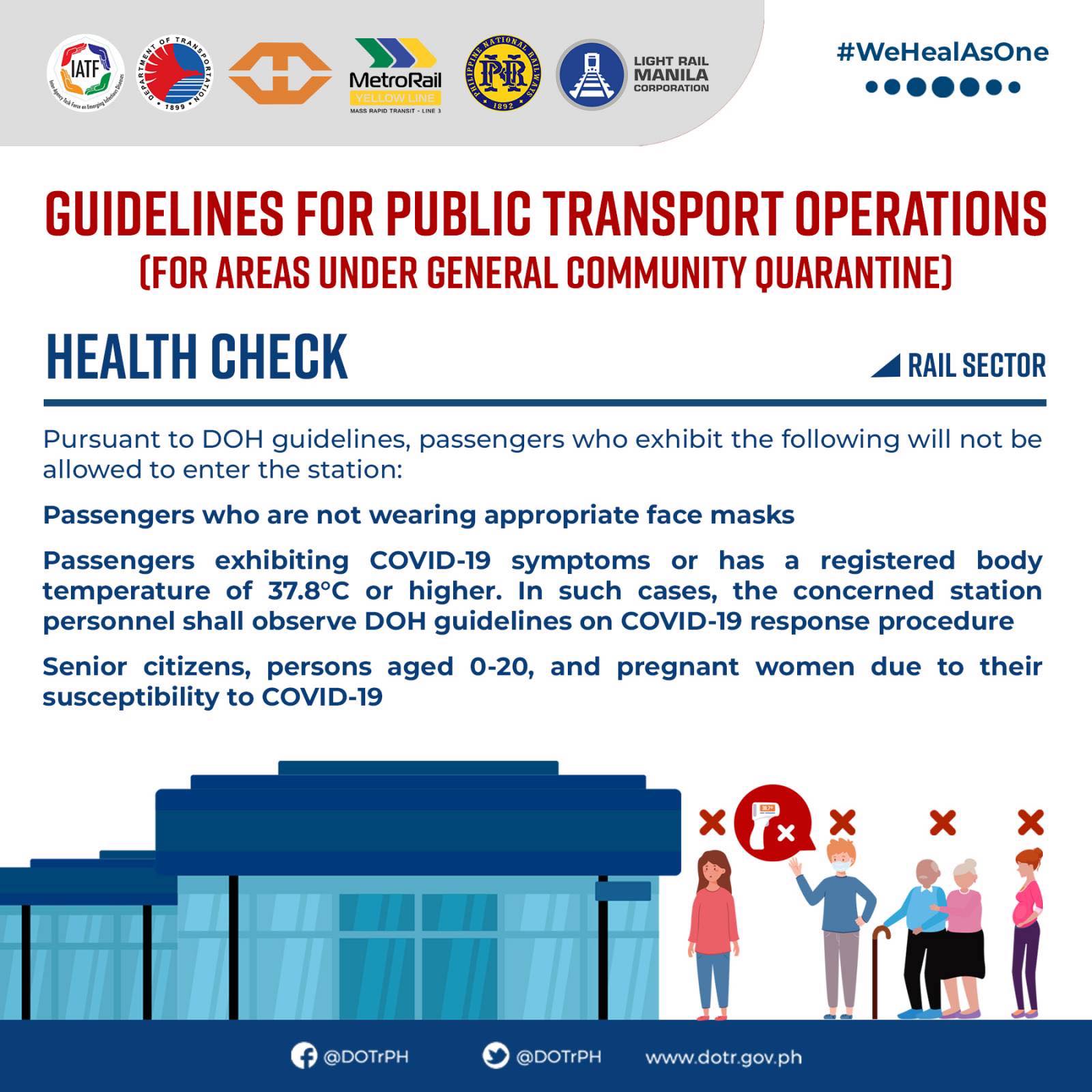
Also, regular disinfection and sanitation of train interiors, station premises and facilities will be conducted. In addition, handwashing or disinfectant stations will be installed to adhere to sanitary measures set by DOH.
PUV drivers and operators, and private or public transport terminal operators who violate the guidelines will be sanctioned and penalized.
The LTFRB, Land Transportation Office (LTO), Inter-Agency Council on Traffic (I-ACT), and authorized personnel of the IATF against COVID-19 will conduct daily random inspections in terminals and depots to ensure strict compliance with the service, sanitary, and operational requirements of the guidelines.
“The DOTr is also calling for the help of enforcement agencies such as PNP and local government units (LGUs) to help ensure that social distancing and sanitation is observed in terminals and vehicles in these municipalities,” says ASec de Leon. “Let us all do our part to safeguard the health of all drivers and commuters in the transport sector.”
Meanwhile, any mode of public transportation in areas under the extended enhanced community quarantine (ECQ), including Metro Manila, are still prohibited.
SOURCE : Department of Transportation Philippines website












